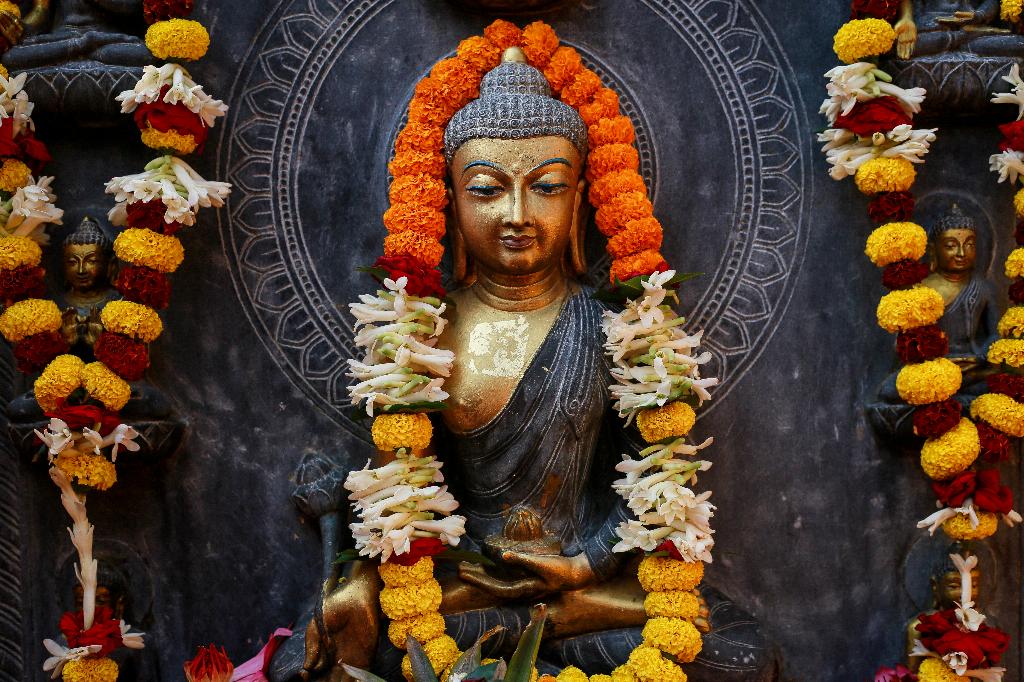In order to truly understand the belief ideas of Buddhism, it is important to delve into the core principles that form the foundation of this ancient religion. Buddhism is a spiritual tradition that focuses on achieving enlightenment and finding inner peace and wisdom. Unlike many other religions, Buddhism does not worship a supreme god or deity. Instead, its followers seek to follow the teachings of the enlightened one, known as Buddha.
Origins of Buddhism
Let us begin by exploring the origins of Buddhism. Buddhism emerged over 2,500 years ago in ancient India, within the historical context of a society deeply entrenched in religious and philosophical debates. The religion was founded by Siddhartha Gautama, who later became known as Buddha, meaning “the awakened one.” He is revered as an extraordinary being who attained enlightenment and shared his teachings to help guide others on the path to spiritual awakening.
Core Beliefs of Buddhism
Central to Buddhism are its core beliefs, which provide a roadmap for individuals seeking to attain enlightenment. One of the fundamental concepts is Dharma, which encompasses the teachings and guidelines for ethical living. The Four Noble Truths lie at the heart of Buddhism and address the nature of suffering and the path to liberation from it. The Eightfold Path outlines the steps one must follow to achieve liberation from suffering and attain enlightenment.
Reincarnation and Karma in Buddhism
Buddhism also incorporates the concept of reincarnation, the belief in the continuous cycle of birth, death, and rebirth. According to Buddhist teachings, an individual’s actions, known as karma, directly influence their future lives. Good actions lead to positive karma, resulting in a better rebirth, while negative actions lead to negative karma, perpetuating the cycle of suffering.
Nirvana: Ultimate Goal of Buddhism
The ultimate goal of Buddhism is to attain Nirvana, a state of complete liberation from suffering and the cycle of rebirth. Nirvana is often described as the extinguishing of desires and attachments, leading to a state of supreme inner peace and liberation. It is a state of transcendence that can be achieved through disciplined practice and following the Buddhist path.
Different Branches and Traditions of Buddhism
Buddhism has branched out into different schools and traditions over the centuries, each with its own unique practices and emphases. Theravada Buddhism focuses on the original teachings of Buddha, emphasizing individual practice and self-liberation. Mahayana Buddhism embodies a more inclusive and compassionate approach, aiming for the liberation of all sentient beings. Vajrayana Buddhism emphasizes the use of rituals, mantras, and meditation techniques to attain enlightenment quickly.
Buddhist Rituals and Practices
Meditation is a key practice in Buddhism, helping individuals develop mindfulness and awareness. Chanting and prayer rituals are also common in Buddhist traditions, offering a way to express devotion and cultivate a sense of peace and gratitude. The importance of mindfulness extends beyond formal practice and is encouraged in daily life, emphasizing the present moment and cultivating a compassionate and ethical mindset.
Symbols in Buddhism
Buddhism is rich in symbolism, with various icons and figures representing different aspects of the religion. The Buddha statue, showcasing the enlightened one in various poses, serves as a reminder of the path to enlightenment. The Dharma wheel embodies the teachings of the Buddha, symbolizing the continuous cycle of existence. The lotus flower, often depicted in Buddhist art, represents purity, spiritual growth, and the ability to rise above worldly suffering.
Buddhism and Ethics
Ethics play a vital role in Buddhism, with a strong emphasis on moral conduct and compassion towards all living beings. Buddhist morality is rooted in principles such as non-violence, honesty, and refraining from harmful actions. Practicing kindness and showing empathy towards others are seen as essential for spiritual growth and the alleviation of suffering in the world.
Buddhism’s Impact on Culture and Society
Throughout history, Buddhism has influenced art, architecture, and cultural practices in various parts of the world. From the majestic temples of Southeast Asia to the exquisite pagodas in East Asia, Buddhist architecture stands as a testament to the religion’s profound impact. Buddhism’s teachings have also spread to different countries, shaping values such as peace, harmony, and respect for all living beings.

Conclusion
In conclusion, the belief ideas of Buddhism encompass a wide range of concepts and practices aimed at attaining inner peace, wisdom, and enlightenment. From the core beliefs of Dharma, the Four Noble Truths, and the Eightfold Path, to the concepts of reincarnation, karma, and the ultimate goal of Nirvana, Buddhism provides a comprehensive spiritual framework for individuals seeking liberation from suffering and the pursuit of a meaningful life.
